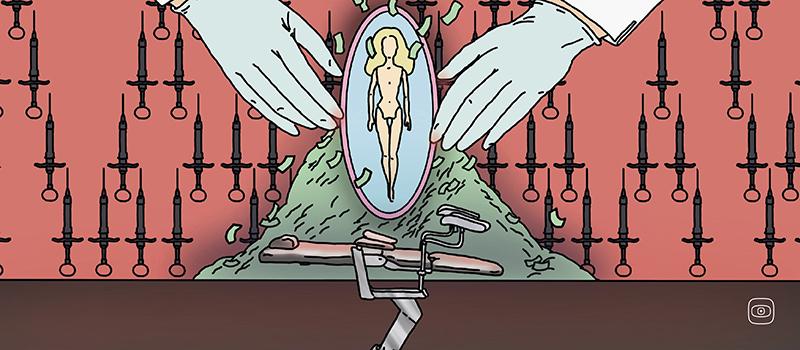Over several months, the team of investigative journalists employed a variety of methods, including undercover reporting, interviews with dozens of patients, analysis of medical records, audits of online advertising, and consultations with international experts in sexual medicine and pelvic neuroanatomy. They uncovered clinics that were making misleading claims and using unproven procedures and aggressive marketing designed to exploit women’s insecurities. Access to medical documentation was often obstructed; some clinics refused to release patient files or proof of payment despite having clear legal obligations to do so.
In both countries, surgeons openly admitted performing hundreds of labioplasties a year — including a significant numbers of revisions following unsuccesful operations. Patients consistently reported long-term pain, loss of sexual sensation, and psychological trauma.
In Romania, the investigation revealed an equally booming industry with parallel patterns of over-marketing, opacity, and weak oversight — including experimental procedures performed in public hospitals and regulatory commissions staffed by doctors active in the same market.
Together, these findings point to a broader European trend: intimate surgery is being commercialised faster than it is being regulated, leaving women exposed to fake science, medical harm, and systemic failures of protection.
Key Findings
- Clinics perform high volumes of intimate surgeries, often with no evidence base and inconsistent standards.
- Marketing uses medical-sounding language to mask cosmetic procedures and downplay risks.
- Patients face barriers accessing their own medical documentation, contrary to Polish law.
- Revision surgeries due to complications or aesthetic dissatisfaction are common.
- Online platforms monetise visibility for clinicians, skewing patient choice and enabling misleading advertising.
- The sector operates in a regulatory grey zone with little oversight or data transparency.
- Parallel boom in Romania and Poland, with similar commercial, legal and ethical gaps.
- A wider European trend of rapid commercialisation outpacing regulation.
Illustration by Dariana Ilie




